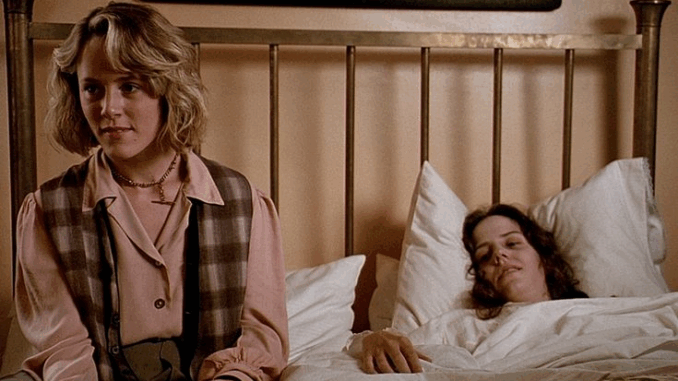
In Fried Green Tomatoes, it’s not grand speeches or heroic feats that move the story forward — it’s the quiet, personal actions. A jar of honey, a hand held in silence, a car crash in a parking lot. These gestures, seemingly small, carry deep emotional weight and shape the lives of the characters in lasting ways.
This is a film where kindness, defiance, and love aren’t shouted — they’re whispered, and yet heard across generations.
Idgie Brings Honey to Ruth
When Idgie visits Ruth and places a jar of wild honey on her porch, she doesn’t ask for anything in return. She doesn’t explain her feelings. She simply offers something sweet, something natural, something honest.
It’s not just honey — it’s:
-
A declaration of care without words.
-
A gesture of peace during Ruth’s turbulent life with Frank.
-
A promise of safety to come.
That one act leads Ruth to trust Idgie, to consider leaving her abusive marriage, and ultimately to start a new life in Whistle Stop.
Feeding People as Resistance
At the Whistle Stop Café, serving food becomes an act of community defense and social rebellion.
Every plate served to people of color in the back kitchen — despite threats and laws — is an act of quiet resistance. Every meal given to a hungry traveler or loyal neighbor reinforces a network of dignity and care.
In the Jim Crow South, feeding someone across racial lines wasn’t just kindness. It was dangerous — and it was necessary.
Evelyn’s “Towanda” Moment
Let’s not forget the famous scene: Evelyn tries to pull into a parking spot at the grocery store, only to be beaten by two younger women who mock her. Later, in a moment of bold defiance, she smashes into their car — twice — yelling “Towanda!”
This isn’t just about parking.
It’s:
-
A symbol of her rebirth.
-
A moment when she claims space — literally and figuratively.
-
A small, contained explosion of power that gives her confidence going forward.
This act, as wild as it may seem, is Evelyn’s first declaration that she matters.

Ruth’s Letter: Goodbye with Grace
Ruth’s final letter to Idgie is short, simple, and devastating. She doesn’t make a big farewell speech. Instead, she writes about the weather, the garden, and her love.
It’s not a dramatic goodbye — it’s a gentle release. And it’s more moving because of its restraint.
Her words: “I love you more than all the bees in a field of clover.”
In that one line, she collapses years of affection and partnership into something timeless.
Ninny’s Invitation to Listen
In the modern-day timeline, Ninny Threadgoode’s stories don’t come with a sales pitch. She doesn’t tell Evelyn, “This will change your life.”
She simply offers a seat, a story, and a smile.
And over time, that small kindness:
-
Unravels Evelyn’s depression.
-
Helps her regain a sense of self-worth.
-
Teaches her how to fight for herself with compassion.
Sometimes, listening is the most revolutionary act.
Final Thought: The Power of the Everyday
In a world that celebrates drama, Fried Green Tomatoes gently reminds us that lasting change often begins with a soft gesture:
-
An open door.
-
A shared meal.
-
A risk taken for someone you love.
These are not footnotes in life’s story. These are the core chapters.
